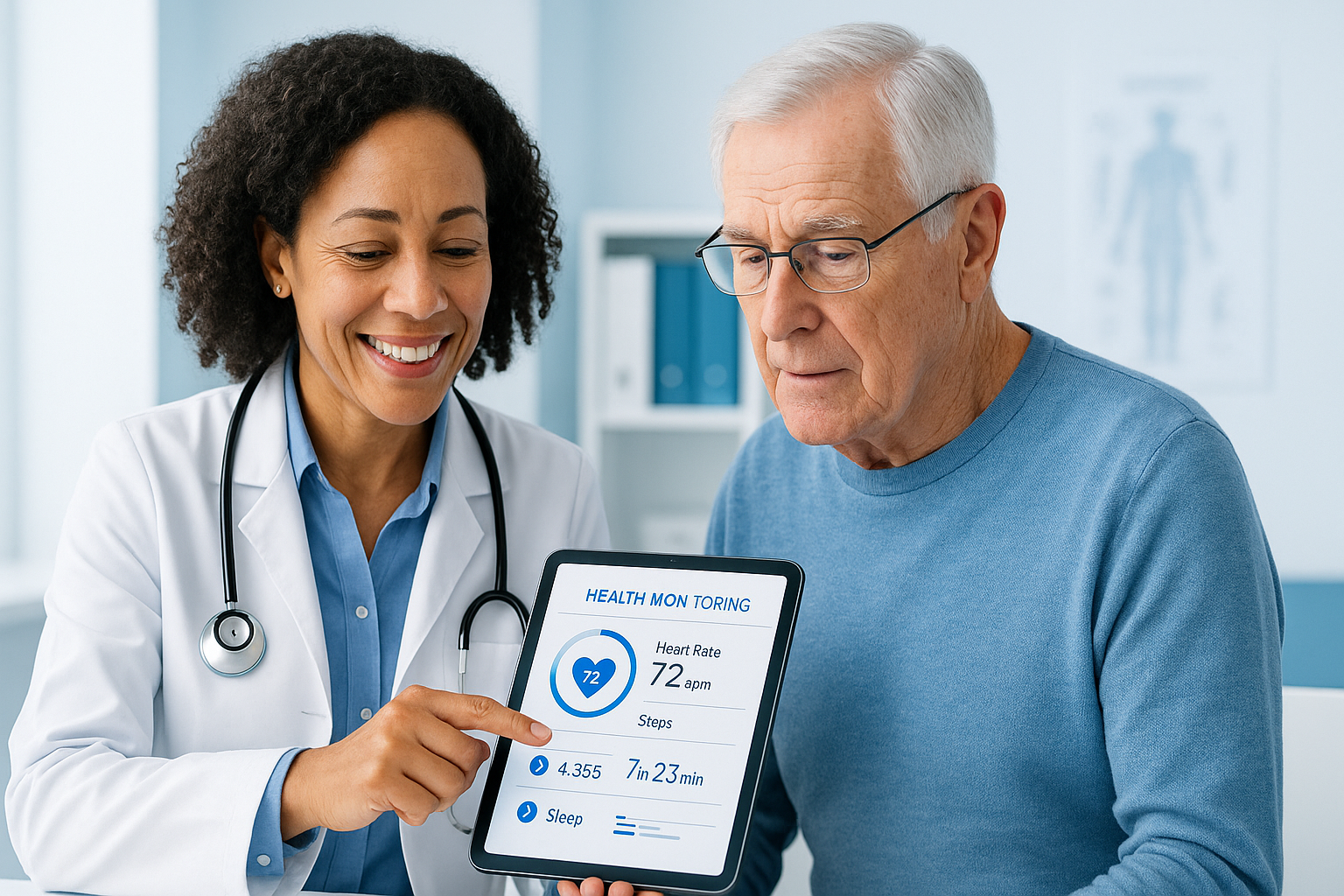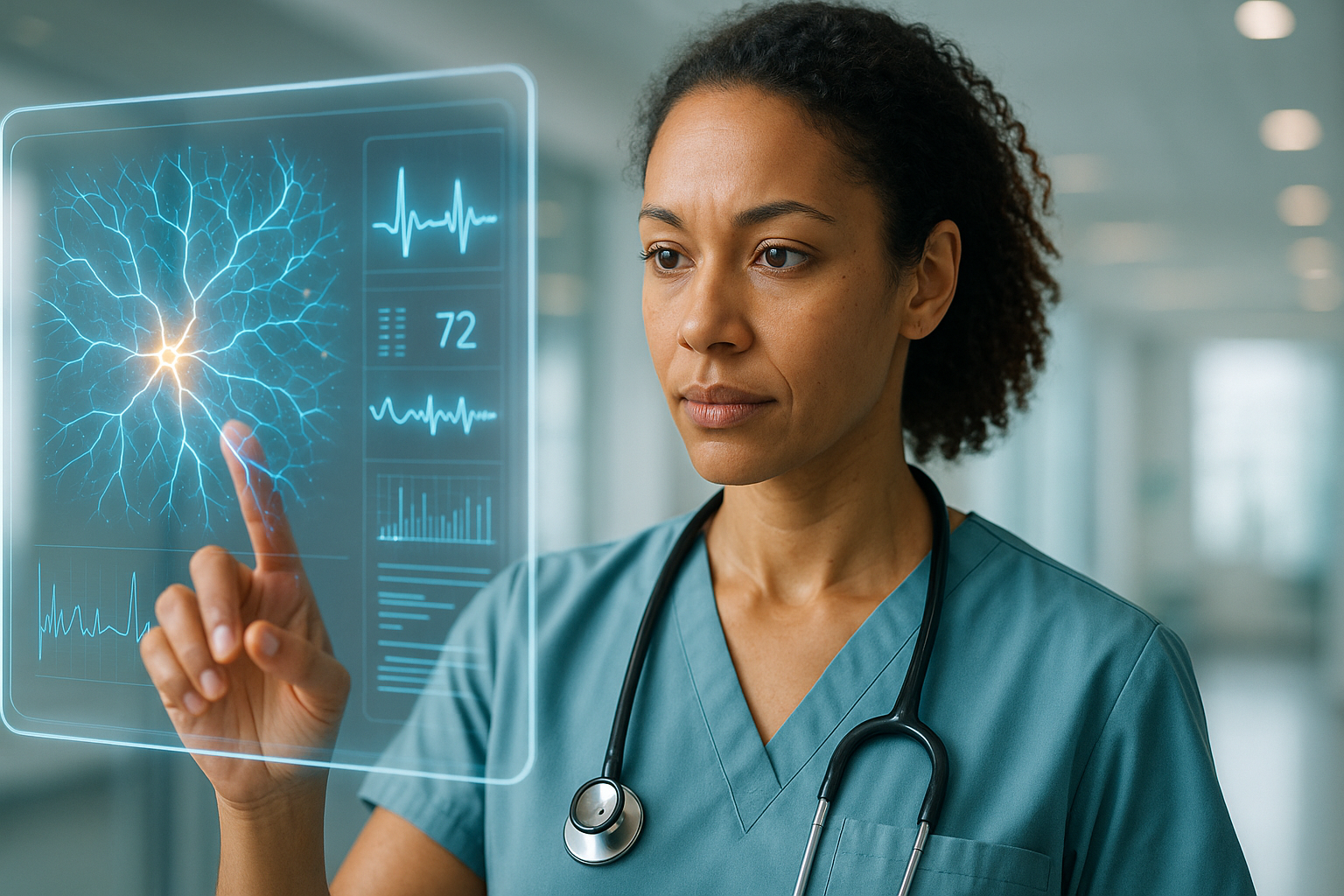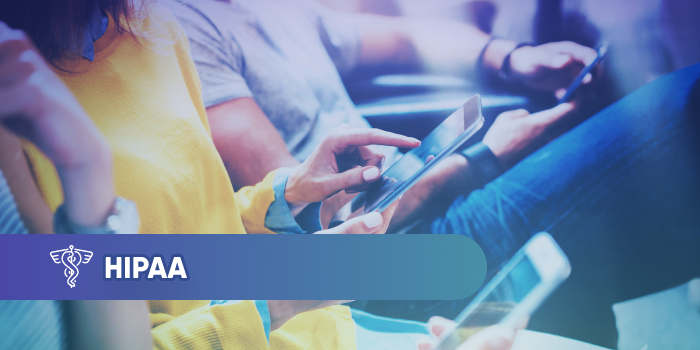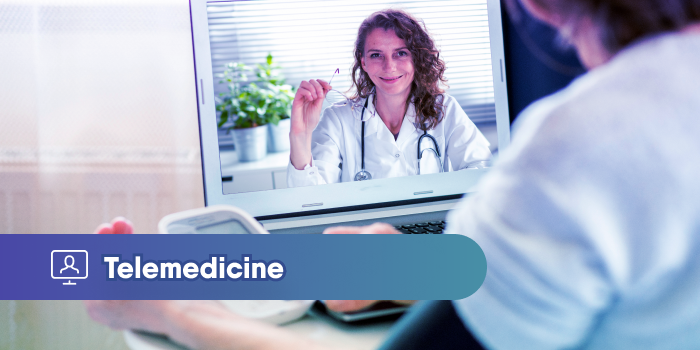The Ultimate Guide to Conversational AI in Healthcare: Benefits, Use Cases, and Future Trends
The global healthcare sector stands at a critical juncture. Faced with the immense pressures of an aging population, the rising prevalence of chronic...
8 min read
Alvin Amoroso : July 3, 2025

In today's digitally-driven world, the impact of mobile technology in healthcare is not just a trend; it's a revolution that is fundamentally reshaping the landscape of patient care, provider efficiency, and overall health outcomes. From the smartphone in your pocket to sophisticated wearable sensors, mobile devices in healthcare are breaking down traditional barriers, making healthcare more accessible, personalized, and proactive than ever before. This comprehensive guide explores the multifaceted role of mobile healthcare technology, diving deep into its applications, benefits, and the exciting future it holds.
The integration of mobile technology into the healthcare ecosystem, often referred to as mHealth, signifies a paradigm shift from reactive to preventive and participatory medicine. Patients are no longer passive recipients of care but are empowered to take an active role in managing their health. Similarly, healthcare providers are equipped with powerful tools that streamline workflows, enhance communication, and improve the accuracy of diagnoses and treatments. As we delve into the specifics of this transformation, it's clear that the synergy between mobile technology and healthcare is creating a more connected and efficient future for everyone.
This article will not only explore the foundational aspects of mobile technology in healthcare but also provide a comprehensive overview of its current applications, the numerous benefits it offers, and a glimpse into the cutting-edge trends that will continue to drive innovation in the years to come. Whether you're a healthcare professional, a patient, or simply curious about the future of medicine, understanding the profound impact of mobile technology is essential.
At its core, mobile health (mHealth) technology refers to the use of mobile devices, such as smartphones, tablets, and wearables, to support and improve healthcare practices. This encompasses a wide range of applications, from apps that help patients manage their chronic conditions to secure messaging platforms that enable seamless communication between doctors and nurses. The primary goal of mobile healthcare technology is to leverage the ubiquity of mobile devices to deliver healthcare information and services more efficiently and effectively.
The scope of mHealth is vast and continues to expand. It includes everything from simple SMS reminders for appointments to complex remote monitoring systems that track a patient's vital signs in real-time. This technology empowers patients with greater access to their health information and tools to manage their well-being, while providing clinicians with the data and connectivity needed to deliver high-quality care, regardless of geographical location. The rise of mobile devices in healthcare has been a game-changer, breaking down the traditional four walls of the hospital and extending care into the patient's home and daily life.
The applications of mobile devices in healthcare are incredibly diverse, touching nearly every aspect of the patient journey. For patients, these devices have become powerful tools for managing their health, accessing information, and communicating with their care teams. Health and wellness apps, for example, allow individuals to track their fitness goals, monitor their diet, and manage chronic conditions like diabetes or hypertension.
For healthcare providers, mobile devices have become indispensable tools that enhance their ability to deliver care. Doctors and nurses use tablets to access electronic health records (EHRs) at the bedside, ensuring they have the most up-to-date patient information at their fingertips. Secure messaging apps facilitate real-time communication and collaboration among care team members, leading to more coordinated and efficient care. Furthermore, mobile devices are increasingly being used for clinical decision support, providing healthcare professionals with access to the latest medical research and treatment guidelines.
One of the most significant impacts of mobile technology in healthcare is the rise of Remote Patient Monitoring (RPM). Through the use of connected devices like blood pressure cuffs, glucose meters, and wearable sensors, healthcare providers can monitor their patients' health from a distance. This is particularly beneficial for patients with chronic conditions, as it allows for continuous tracking of their vital signs and other health metrics.
RPM empowers patients to take a more active role in managing their health while providing their doctors with a wealth of data to make more informed treatment decisions. This constant stream of information can help to identify potential health issues before they become serious, reducing the need for hospitalizations and emergency room visits. The convenience of being monitored from the comfort of their own home also significantly improves the patient experience.
The COVID-19 pandemic accelerated the adoption of telehealth, and mobile healthcare technology was at the forefront of this shift. Video conferencing apps and dedicated telehealth platforms have made it possible for patients to have virtual consultations with their doctors, therapists, and other healthcare providers. This has been a lifeline for individuals in rural or underserved areas, as well as for those with mobility issues.
Telehealth offers a level of convenience and accessibility that was previously unimaginable. Patients can receive medical advice, prescriptions, and follow-up care without having to leave their homes. This not only saves time and money but also reduces the risk of exposure to infectious diseases. As internet connectivity and mobile device penetration continue to increase, telehealth is poised to become an even more integral part of the healthcare landscape.
Effective communication is the cornerstone of safe and effective healthcare. Mobile devices in healthcare have revolutionized the way care teams communicate and collaborate. Secure messaging apps allow doctors, nurses, and other specialists to share patient information, discuss treatment plans, and coordinate care in real-time. This eliminates the delays and miscommunications that can occur with traditional methods like pagers and phone calls.
This enhanced communication leads to more efficient workflows and better patient outcomes. For example, a nurse can quickly send a photo of a patient's wound to a specialist for a consultation, or a doctor can receive an alert on their smartphone when a patient's lab results are available. This level of connectivity ensures that everyone on the care team is on the same page, leading to more timely and effective interventions.
The days of cumbersome paper charts are numbered, thanks to the integration of mobile technology in healthcare with Electronic Health Records (EHRs). Mobile-friendly EHR apps allow healthcare providers to access and update patient records from their smartphones or tablets, whether they are in the hospital, in their office, or on the go. This immediate access to comprehensive patient information is crucial for making informed clinical decisions.
For patients, mobile access to their own health records through patient portals is empowering. They can view their lab results, medication lists, and upcoming appointments, giving them a greater sense of control over their healthcare journey. This transparency fosters a stronger patient-provider relationship and encourages patients to be more engaged in their care.
The use of mobile wireless technologies for health extends beyond just communication. These technologies are the backbone of the Internet of Medical Things (IoMT), a network of connected medical devices, sensors, and healthcare IT systems. This interconnected ecosystem allows for the seamless collection and exchange of health data, paving the way for more proactive and personalized care.
Wireless technologies enable everything from smart inhalers that track medication usage to continuous glucose monitors that send real-time data to a patient's smartphone. This constant stream of information provides a more complete picture of a patient's health, allowing for more timely interventions and a more personalized approach to treatment. The ability to collect and analyze this data is also driving innovation in predictive analytics, helping to identify patients at risk of developing certain conditions.
The landscape of mobile health devices is incredibly diverse and constantly evolving. Some of the most common examples include:
These are just a few examples of the thousands of mobile health devices that are currently available, with new and innovative technologies emerging all the time.
The integration of Artificial Intelligence (AI) and Machine Learning (ML) with mobile technology in healthcare is unlocking new frontiers in diagnostics and personalized medicine. AI-powered apps can analyze medical images, such as skin lesions or retinal scans, to detect signs of disease. ML algorithms can analyze large datasets of patient information to identify patterns and predict the risk of developing certain conditions.
For example, an app could use the camera on a smartphone to analyze a mole for signs of skin cancer, providing an early warning that could save a life. Similarly, AI-powered chatbots can provide patients with instant answers to their health questions and guide them to the appropriate level of care. As these technologies continue to mature, they will play an increasingly important role in making healthcare more proactive and predictive.
Medication non-adherence is a major challenge in healthcare, leading to poor health outcomes and increased costs. Mobile healthcare technology offers a range of solutions to this problem. Medication reminder apps can send notifications to patients when it's time to take their pills, and smart pill bottles can track when the bottle has been opened.
Some apps even use gamification and rewards to motivate patients to stick to their medication schedules. By improving medication adherence, mobile devices in healthcare can help to ensure that patients get the full benefit of their prescribed treatments, leading to better management of chronic conditions and a lower risk of complications.
Mobile technology in healthcare has democratized access to health information. Patients no longer have to rely solely on their doctors for information about their conditions and treatment options. A wealth of reliable health information is now available through mobile apps and websites, empowering patients to become more informed and engaged participants in their own care.
These resources can provide information on everything from healthy lifestyle choices to the latest research on a particular disease. This increased access to knowledge fosters a more collaborative relationship between patients and providers, leading to shared decision-making and better health outcomes.
The future of mobile technology in healthcare is incredibly bright, with several exciting trends on the horizon. The continued development of 5G technology will enable faster and more reliable connectivity, which is essential for data-intensive applications like real-time video streaming for telehealth and the seamless transmission of data from a massive number of IoMT devices.
We can also expect to see a greater integration of virtual and augmented reality (VR/AR) in healthcare. VR can be used for everything from pain management and mental health therapy to surgical training. AR can overlay digital information onto the real world, providing surgeons with a more detailed view of the surgical site or helping patients to understand how a particular medication works in their body. As these technologies become more accessible and affordable, they will undoubtedly revolutionize the way healthcare is delivered and experienced.
Mobile health (mHealth) technology is the use of mobile devices, such as smartphones, tablets, and wearables, to support public health and medical practices. It encompasses a wide range of applications, including remote patient monitoring, telehealth consultations, medication reminders, and access to electronic health records. The primary goal of mHealth is to leverage the widespread use of mobile devices to make healthcare more accessible, efficient, and patient-centered.
Mobile devices are used in healthcare in numerous ways. For patients, they serve as tools for managing chronic conditions, tracking fitness and wellness goals, accessing health information, and communicating with providers. For healthcare professionals, mobile devices provide on-the-go access to patient records, facilitate secure communication with colleagues, and support clinical decision-making with access to medical guidelines and research.
Mobile wireless technologies are crucial for the functioning of mHealth. They enable the real-time transmission of data from remote monitoring devices, support video conferencing for telehealth visits, and provide the connectivity needed for healthcare providers to access cloud-based electronic health records. These technologies are the foundation of the Internet of Medical Things (IoMT), which connects a vast network of medical devices and sensors.
There is a wide array of mobile health devices available. Some common examples include:
While the benefits of mobile technology in healthcare are undeniable, there are also challenges that need to be addressed. Data privacy and security are paramount, and robust measures must be in place to protect sensitive patient information. Interoperability between different mHealth apps and systems is another key consideration, as seamless data exchange is essential for coordinated care.
Furthermore, we must ensure that the adoption of mobile healthcare technology does not exacerbate existing health disparities. It is crucial to address the digital divide and ensure that everyone, regardless of their socioeconomic status or technological literacy, has access to these transformative tools.
Despite these challenges, the opportunities presented by mobile technology in healthcare are immense. By continuing to innovate and address these hurdles, we can create a future where healthcare is more personalized, participatory, and predictive. The journey has just begun, and the continued evolution of mobile devices in healthcare promises to bring about even more profound and positive changes in the years to come.

The global healthcare sector stands at a critical juncture. Faced with the immense pressures of an aging population, the rising prevalence of chronic...

To be HIPAA-compliant when using mobile devices, healthcare professionals need to set up communication protocols that safeguard patient health...

Today, people are now more tech-savvy and generally more aware of their health thanks to the internet and a variety of health care apps. Because of...